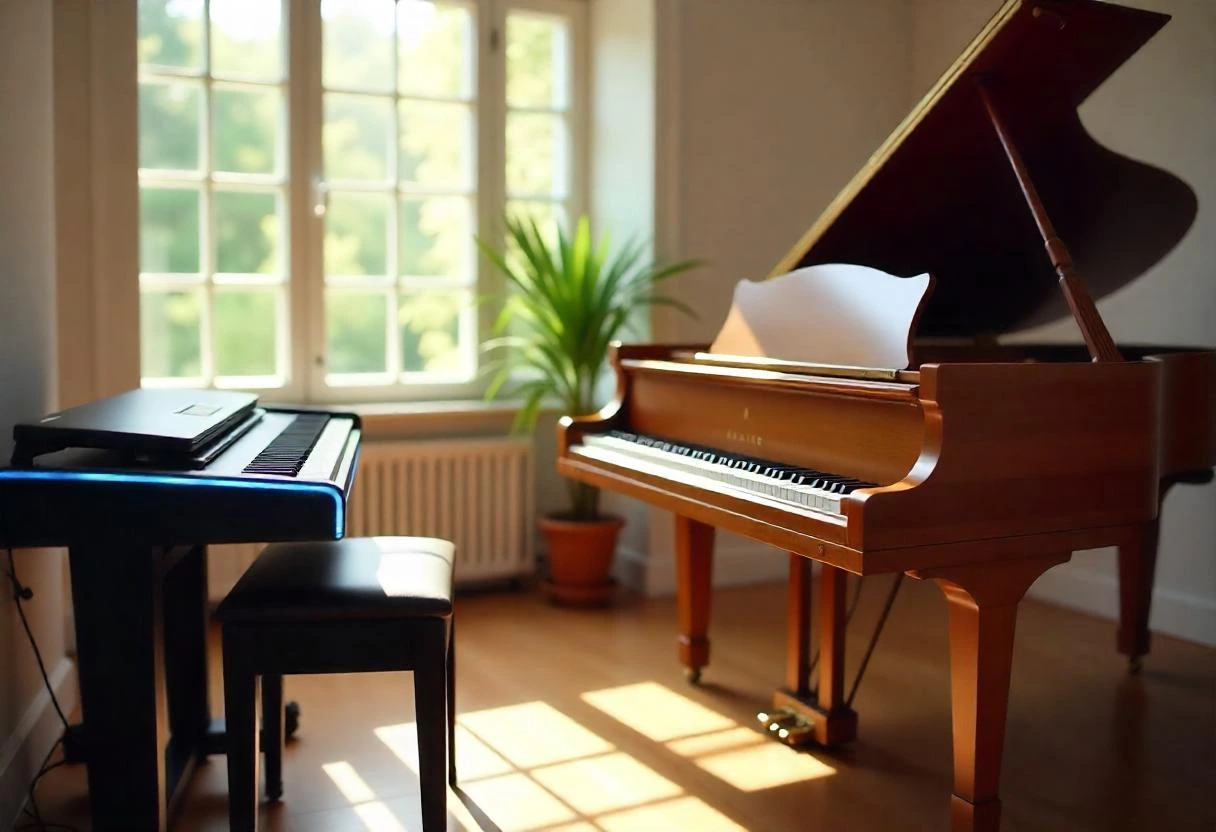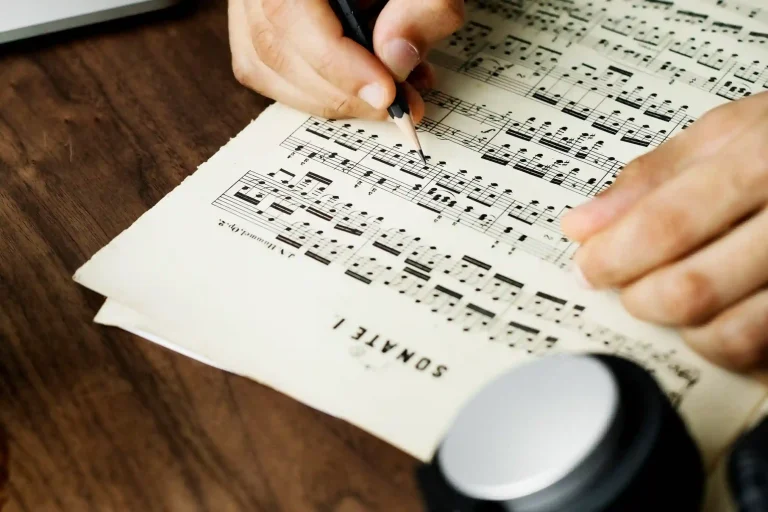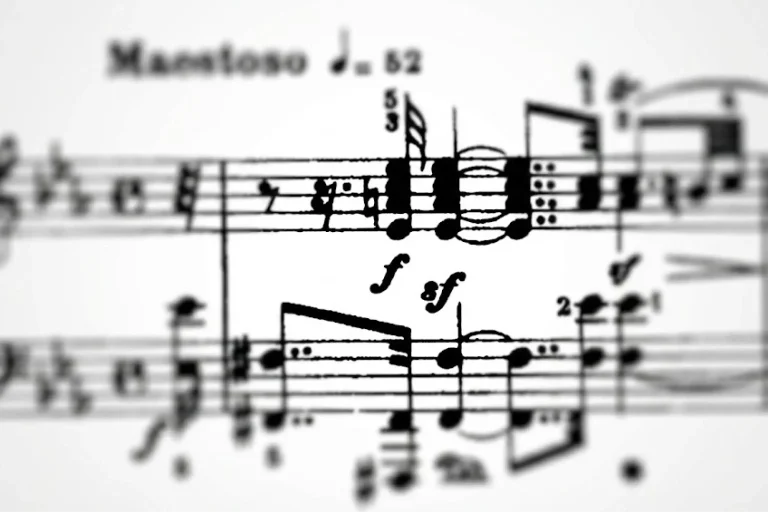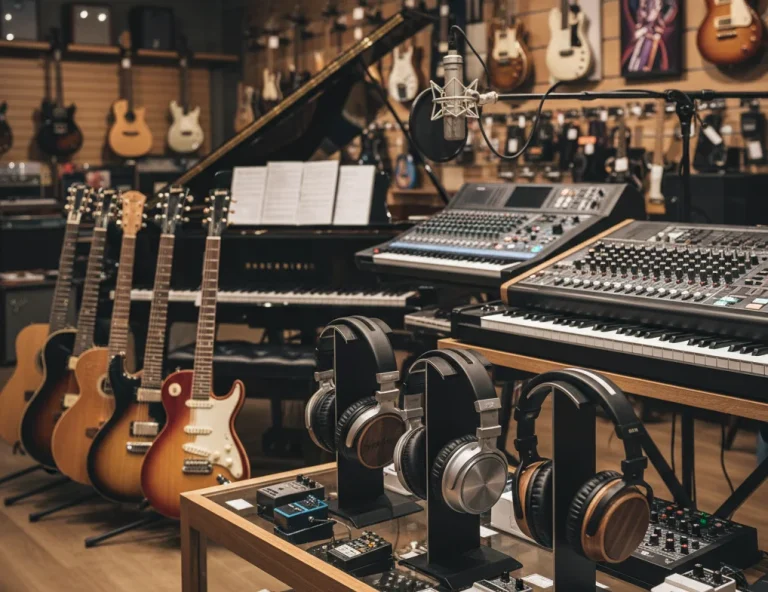All Topics
- Alchemizing Music Concepts for Students
- Artist Spotlight
- artium gift card
- Artium Maestros
- Artium News
- buying guide
- Carnatic Music
- Devotional Music
- Editorials by Ananth Vaidyanathan
- Film Music
- Guitar
- Hindustani Classical Music
- Indian Classical Music
- Indian Folk Music
- Insights
- Instruments
- Karaoke Singing
- Keyboard
- Kids Music
- maestros
- Music Education
- Music for Kids
- Music Industry
- Music Instruments
- Music Legends
- Music Theory
- Music Therapy
- Piano
- piano guide
- Success Stories
- Tamil Film Music
- Telugu Film Music
- Time Theory
- Tools
- Uncategorized
- Vocal Singing
- Vocals
- western classical music
- western music
- Western vocal music
Digital vs Acoustic Pianos: Which is Best for Beginners?
Digital vs Acoustic Pianos: Which is Best for Beginners?

Table of Contents
The choice of piano appears to be quite an uphill task for most people, especially pianists falling in the beginner category. The debate of digital vs acoustic piano arises among new players and parents. Each option has its unique features and benefits, making it important to understand their differences. We shall look into the two kinds of pianos, their characteristics, and the best piano for beginners in this blog.
Digital vs Acoustic Piano: Understanding Digital Pianos
Digital pianos changed everything in the approach toward music learning and playing. This musical instrument uses samples of the acoustic piano sound for a feel of playing on the acoustic piano. Various elements feature built-in metronomes, numerous instrument sounds, and recording capacities. Several digital pianos are sold with weighted keys to give the musician an exact feeling just like an acoustic one.
One of the major plus points of digital pianos is that they are portable. They are much lighter and can be easily moved around when not in use. They also feature headphone outputs that allow a beginner to practice silently without causing any disturbance to those around them. This feature makes them quite useful for individuals who share faces or apartments with others.
Digital vs Acoustic Piano: All About Acoustic Pianos
Acoustic pianos are traditional, with sound produced by hammers striking strings. They come in two main types: one is grand and the second upright. A lot of craftsmanship goes into making acoustic pianos, which adds to the rich, subtle sound they produce. Many musicians swear by the responsiveness and tactile feedback they get from an acoustic piano to this day. However, acoustic types of pianos require more upkeep than their digital counterparts. Regular tuning is necessary to keep them sounding the best, as they can be sensitive to changes in temperature and humidity. Acoustic pianos are more costly than the others. This can be a significant consideration for beginners who might be uncertain about the long-term commitment to learning the instrument.
Key Differences: Digital vs Acoustic Piano
When you take online piano lessons, you will understand that several differences emerge between the two. Such as:
- Sound production: Digital pianos use electronic sound generation, whereas acoustic ones rely on mechanical processes. This distinction can affect the overall sound quality and playability.
- Portability: Digital pianos are lighter and easier to transport, making them a better choice for those who may need to move the instrument frequently.
- Maintenance: Acoustic pianos require regular tuning and maintenance, which can add to the overall cost of ownership.
- Cost: Digital pianos are more affordable than acoustic ones, making them an accessible option for beginners.
- Learning Features: Many digital pianos come equipped with various learning aids, such as built-in lessons and the ability to connect with educational apps. These features can enhance the learning experience, making it easier for beginners to progress in the musical journey.
- Volume Control: Digital pianos often have adjustable volume settings and headphone outputs, allowing players to practise without disturbing others. This feature is especially useful for beginners who may be self-conscious about their playing.
Digital vs Acoustic Piano: Factors to Consider for Beginners
When deciding between digital vs acoustic piano, beginners should consider several factors:
- Budget: If cost is a significant concern, digital pianos usually offer a wider range of options at various price points. This affordability allows beginners to invest in a quality instrument without causing a hole in their pockets.
- Space: For those with limited space, digital pianos can be more practical. Their compact size makes them easier to fit into smaller living areas.
- Practice Environment: If you live in a shared space or have noise restrictions, a digital piano with headphone capabilities is ideal for you. This allows for quiet practice sessions without disturbing people around you.
- Learning Goals: Assume how you plan to use the piano. If you are interested in experimenting with various sounds and features, digital pianos may be more well-suited to your needs. However, if you aim to form a deep connection with the instrument, you might find the experience of playing an acoustic piano more fulfilling.
- Long-term Commitment: If you are unsure about your commitment to learning the piano, start with a digital piano. Their flexibility and features cater to beginners, making the learning process extremely satisfying.
Conclusion
Picking between digital vs acoustic piano is a crucial step at the beginning of your musical journey. To make your learning experience even more insightful, we at Artium Academy offer online piano classes boasting an engaging course curriculum with expert guidance that’ll help you build your fundamental skills of playing a piano. Whichever type of piano you choose, let your passion for music shine bright as you embark on this musical adventure with us.
To learn more about the fundamental difference between these two pianos in our piano classes, Click the below button and Book a Free Trial.






